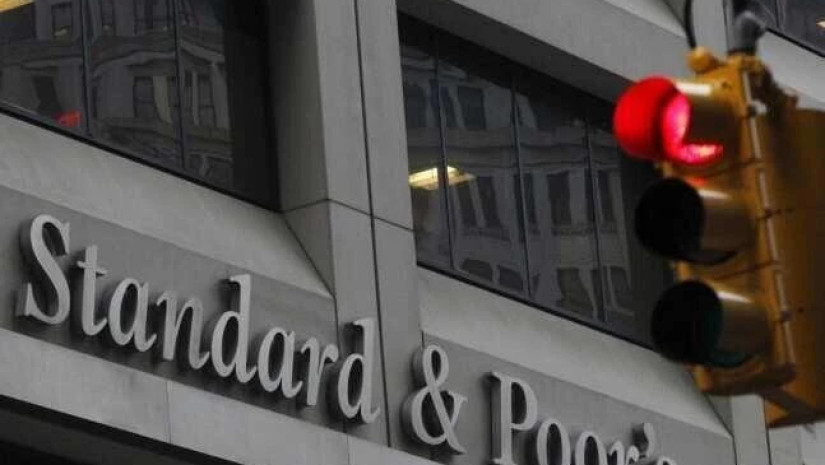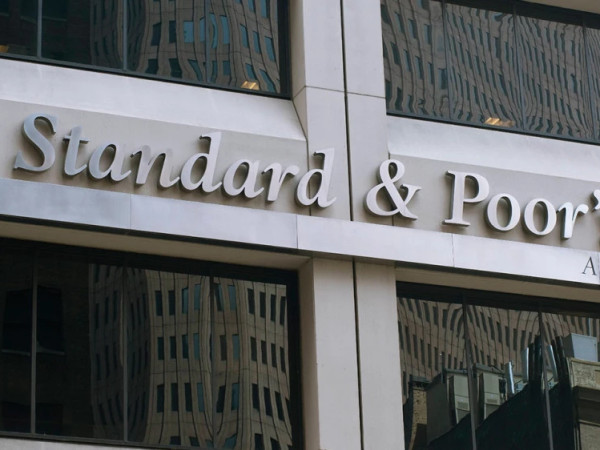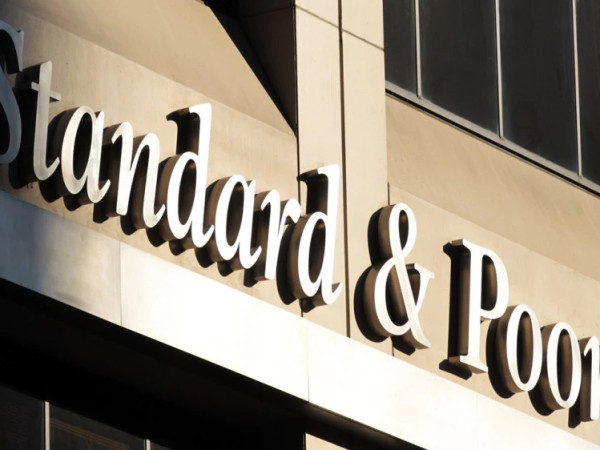S&P Global Ratings has revised its outlook on Georgian economy.
• We expect the Georgian economy to contract in 2020 as COVID-19-related restrictions suppress domestic economic activity and tourism.
• Although we expect that a gradual recovery will commence in the second half of the year, the recession will have a significant impact on Georgia's banking sector, resulting in credit losses increasing to 4% in 2020 under our base-case scenario.
• We now consider the economic risk trend for Georgia stable instead of positive.
• As a result, we are revising our outlook on Liberty Bank JSC to stable from positive and affirming our 'B/B' ratings on the bank.
• We are also revising our outlook on Cartu Bank JSC to negative from stable and affirming our 'B/B' ratings on the bank.
• Finally, we are affirming our ratings on VTB Bank (Georgia) at 'BB/B' with a stable outlook.
Global Ratings today said it revised its outlook on Cartu Bank JSC to negative from stable, and its outlook on Liberty Bank JSC to stable from positive. At the same time, S&P Global Ratings affirmed its long- and short-term issuer credit ratings on VTB Bank (Georgia) at 'BB/B', and Liberty Bank JSC and Cartu Bank JSC at 'B/B'.
We believe Georgia will experience a recession in 2020 as COVID-19 restrictions put pressure on economic activity both in Georgia and globally. As of today, the state of emergency in Georgia will continue through April 21, 2020, including temporary lockdown for many companies operating in non-essential sectors. We think that tourism-related businesses, which represent an important share of Georgian economy, will likely be among the most affected sectors, experiencing negative consequences from disrupted cross-country and internal travel and rapidly decreased tourism. We believe the transport and commercial real estate segments will also take a hit in the recession. However, we think that Georgian banks' direct exposure to these sectors is not excessive and, so they will be able to withstand expected deterioration of asset quality.
We think that the 2 billion Georgian lari (GEL; about $650 million) support package announced by the Georgian government will only partially alleviate the stress to the economy and households. Currently, our base-case scenario envisages a sharp economic contraction in the first half of 2020 and a gradual recovery commencing in the second half of the year as restrictions are lifted. This recession, the first in 12 years, will have substantial negative implications for the banking sector, in our view, as GEL depreciation from rather high dollarization of banking sector assets and liabilities, economic contraction, and related loss of employment will put the quality of loan portfolios under pressure. We therefore assume in our forecast that cost of risk for the banking sector will rise to 4% in 2020 from an estimated 1% in 2019.
We have revised our assessment of Georgia's economic risk trend to stable from positive. This reflects the implications of the upcoming recession. However, under our base-case scenario, the economy will be recovering in 2021-2022. The country's economy has absorbed a number of shocks and demonstrated its ability to adjust to external challenges in previous crises.
We view the trend in industry risk as stable. We expect the banking sector will maintain its relatively high reliance on external funding in the near term. We believe that because a significant part of this funding is provided by international financial institutions, this is less volatile and long term compared with typical wholesale funding provided by capital markets, which to some extent will support funding base stability for the sector. We expect banks to revise their appetites for new lending at least in 2020. We think that better banking regulation compared with that of regional peers will also support the sector's stability.
The affirmation of Liberty Bank JSC reflects our view that the bank is well-positioned to withstand upcoming stress. Liberty Bank is considerably less dollarized than its domestic peers with share of foreign currency loans at 25% of its loan book, compared with 55% average for the sector. About 40% of its loan book is to retail clients with regular inflows from the government, such as recipients of social distributions or public sector employees, whose revenues are less likely to be immediately affected. Another 10% of the portfolio are loans collateralized by gold, which should limit the possible losses for the bank. Our projections incorporate cost of risk to increase to 5% of gross loans in 2020, which should provide Liberty Bank with sufficient capital to compete with the two largest banks in the country once the economy begins to recover and the bank will revert to new lending. Nevertheless, we consider an upgrade over the next 12 months less likely than before given the stress the economy will undergo in 2020, hence the outlook revision to stable.
The affirmation of VTB Bank (Georgia) reflects our view that the bank remains a strategically important subsidiary of Russian VTB Bank JSC and should benefit from extraordinary support if needed. The bank's loan book is slightly less dollarized than those of its immediate peers, with foreign currency loans reaching 46% of the total compared with a 55% market average. Our base-case projections incorporate an increase of cost of risk to 4% in 2020 from virtually 0% in 2019 before normalizing at 1.7%-1.8% in 2021. Under these assumptions, risk-adjusted capital should stay above 7% over the next 12-18 months, comfortably in the adequate category.
The outlook revision on Cartu Bank largely reflects our expectations that economic contraction should materially delay the bank's plans for sale of its large legacy nonperforming assets and revitalization of its balance sheet. High dollarization of the balance sheet (69% of the loan book), focus on long-term projects, and a significant share of nonperforming loans (Stage 3 under IFRS 9 constituted about 40% of the total loan book at year-end 2019) are likely to require further provisioning, which can test currently strong capitalization. In particular, we believe that cost of risk in 2020 will likely increase to over 4%, similar to 2015, corresponding to a decline in projected risk-adjusted capital to 10.0%-10.5% compared with our earlier projections of over 12%, and making it vulnerable to potential provisioning needs.
S&P Global Ratings acknowledges a high degree of uncertainty about the rate of spread and peak of the coronavirus outbreak. Some government authorities estimate the pandemic will peak about midyear, and we are using this assumption in assessing the economic and credit implications. We believe the measures adopted to contain COVID-19 have pushed the global economy into recession (see our macroeconomic and credit updates here: www.spglobal.com/ratings). As the situation evolves, we will update our assumptions and estimates accordingly.
Outlook
Liberty Bank JSC
The stable outlook on Liberty Bank reflects our view that, over the next 12 months, the bank will withstand the recession and maintain its creditworthiness because its business model will likely be more resilient to the stress compared with peers at similar rating levels.
We would consider taking a positive rating action if we saw Liberty Bank remained resilient in adverse market conditions as evidenced by the bank withstanding the crisis with its cost of risk comparing favorably with the market average. We could also consider a positive rating action if the bank withstands the crisis and reverted to its sustainable new growth strategy after the correction is over.
We would consider a downgrade if, contrary to our expectations, we saw Liberty Bank facing a materially stronger deterioration of asset quality, which might put additional pressure on its growth capabilities and capital adequacy.
VTB Bank (Georgia)
The stable outlook on VTB Bank (Georgia) reflects our view, that over the next 12 months, the bank will withstand the recession while remaining competitive in the Georgian challenging landscape.
The possibility of a positive rating action is remote, given that our long-term rating on VTB Bank is at the level of our long-term sovereign rating on Georgia. An upgrade to the bank would therefore hinge on an upgrade to the sovereign, along with a more positive view on the bank's stand-alone credit profile, which could follow if we observed that banking sector risks in the country were abating.
We could consider a downgrade of VTB Bank if we saw that the bank's relative importance for its parent had substantially weakened, in particular, if VTB Bank JSC's interest or capacity to provide extraordinary financial support for VTB Bank (Georgia) diminished. A deterioration of the sovereign's creditworthiness resulting in a downgrade of Georgia would also lead us to downgrade the bank.
Cartu Bank JSC
The negative outlook on Cartu Bank reflects our view that, over the next 12 months, the bank will likely face difficulties in implementing its strategy aimed at selling nonperforming assets and revitalizing its balance sheet, due to challenging conditions for the Georgian economy and banks in 2020. This will result in a very high level of nonperforming loans remaining on its balance sheet longer than expected.
A downgrade might follow if new provisioning needs are not offset by adequate capital support from shareholders, resulting in risk-adjusted capital declining below 10%, a level we would no longer consider strong. A substantial decline in operating revenues on the back of deteriorating asset quality could also result in a negative rating action.
We could revise the outlook back to stable if we saw Cartu Bank maintaining its strong capitalization while disposing of legacy nonperforming assets, revitalizing its balance sheet, and reverting to sustainable business growth.















